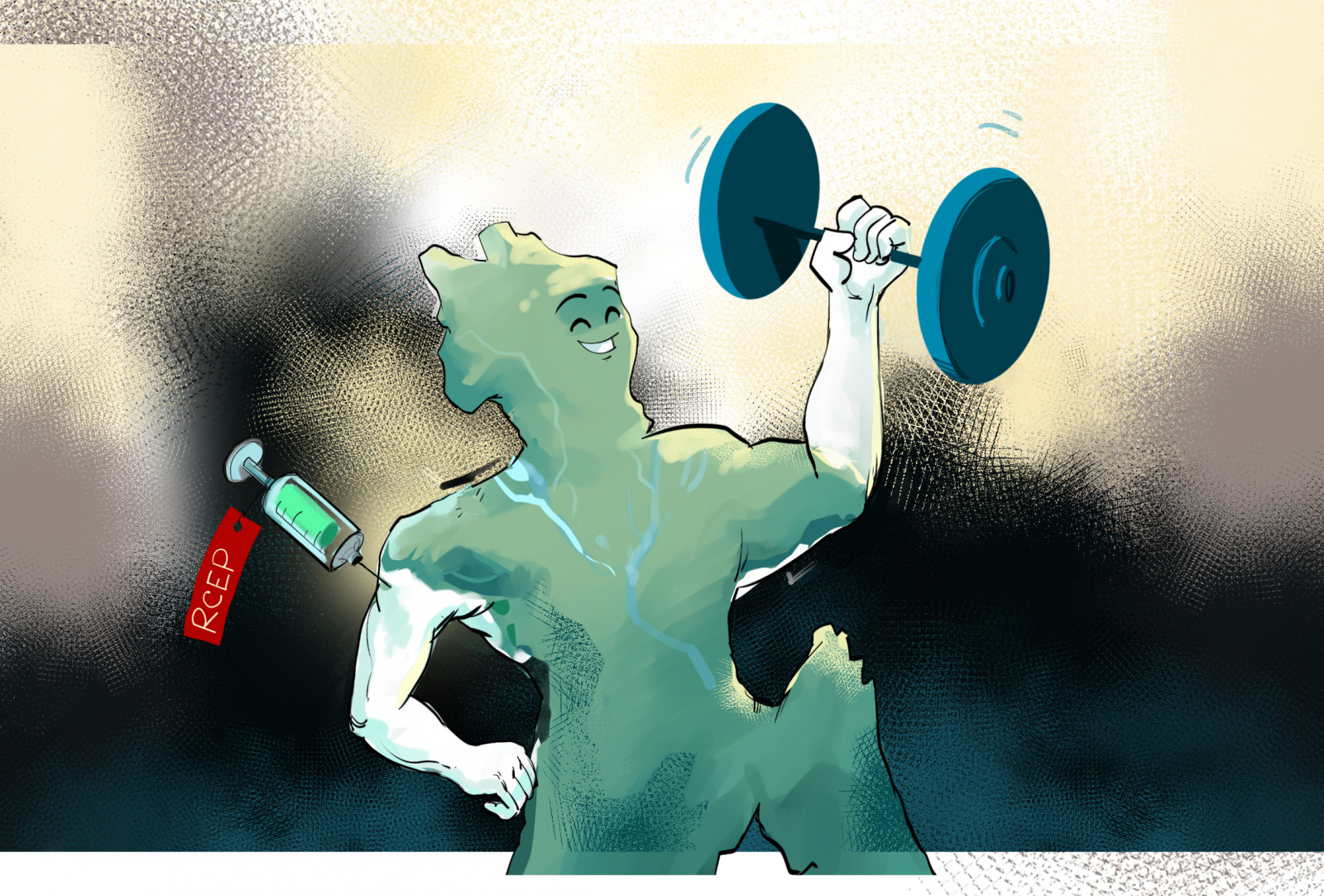Bangladesh decides to join largest trade bloc
Commerce ministry will send a formal proposal to the China-led RCEP

Bangladesh has decided to join the world's largest trading bloc, the Regional Comprehensive Economic Partnership (RCEP), to stay eligible for duty-free trade facilities in the markets of nearly one-third of the global economies after it graduates to a developing nation in 2026.
The commerce ministry will send a formal proposal to the RCEP headquarters, conveying the country's interest in availing a membership to the bloc, as decided in a meeting on Sunday, a senior official of the ministry told The Business Standard.
With the trading alliance of 15 economies, including China and Japan, entering into force at the beginning of 2022, Bangladesh's exports to the RCEP nations will not face much trouble until 2026 when the country's duty-free access to these two major markets will end, according to commerce ministry officials.
The country is getting duty-free facilities in New Zealand and Australia too. But after the LDC graduation, such facilities will no longer be available.
Besides, if Bangladesh does not join the RCEP or sign free trade agreements separately with those countries by 2026, it will lose its competitive edge in apparel export destinations, especially in China and Japan, while its competitor Vietnam as an RCEP signatory will enjoy duty-free access there after the deal takes effect. In this way, ministry officials think, Bangladesh might lose its market share to Vietnam.
That is why, keeping in mind possible losses of trade benefits in RCEP member countries, Bangladesh has decided to enter the trade association, they said.
On 15 November 2020, the 15 countries – China, Japan, South Korea, Australia and New Zealand; 10 members of the Association of Southeast Asian Nations (Asean): Brunei, Vietnam, Laos, Cambodia, Thailand, Myanmar, Malaysia, Singapore, Indonesia and the Philippines – inked the world's largest free trade agreement that covers 2.2 billion people with a combined GDP of $26.2 trillion.
The deal aims to lower tariffs, open up trade in services and promote investment to help emerging economies catch up with the rest of the world. The RCEP is especially expected to help reduce costs and time for companies by allowing them to export a product anywhere within the bloc – without meeting separate requirements for each country.
Once ratified by three-fifths of the 15 signatories – six Asean countries and three non-Asean countries in their respective parliaments – the RCEP deal will come into effect in 60 days. Japan, Singapore and Thailand have already ratified the RCEP agreement domestically. The trading alliance plans to launch its operation in January next year.
The concept of RCEP was hatched in 2012 and gained momentum in 2017 when the US walked out of the Trans-Pacific Partnership (TPP), later renamed the Comprehensive and Progressive Agreement for Trans-Pacific Partnership (CPTPP).
The initiative got new impetus from the US-China trade war, which had knocked the region's economy to its lowest in five years even before Covid-19 broke out.
In November 2019, India was onboard when leaders of 16 nations concluded RCEP negotiations in Bangkok and expected to sign the deal formally in 2020. India later pulled out, citing unresolved issues.
During that time, Bangladesh had stayed aloof from the entire negotiation process in the formation of the world's largest trade bloc. Later, experts opined that Bangladesh might lose trade benefits and face problems in attracting foreign direct investment because of the China-led RCEP. They suggested that Bangladesh try to join or at least sign a deal with the RCEP to safeguard its economy after graduating to a developing country.
Within a week into the formation of the trading bloc last year, Bangladesh's commerce ministry formed a nine-member committee to assess any possible negative impact from the RCEP on the country's exports. The committee was also tasked with identifying what benefits Bangladesh would get if it joined the free trading bloc.
According to the committee, 10 Asean countries have already introduced duty-free trade facilities among themselves. Among the remaining six signatories, China and Japan are important markets for Bangladesh as it is getting duty-free access to these countries.
Bangladesh's exports to four other countries, including Australia and New Zealand, are low. So, the commerce ministry does not think the RCEP will cause any problem for Bangladesh immediately. When Bangladesh graduates to a developing country, there will be a negative impact on exports and foreign direct investment, it added.
The committee submitted a report to the ministry after reviewing what is in the RCEP agreement, Dr Mostafa Abid Khan, member of the committee and immediate-past member of the Bangladesh Trade and Tariff Commission, told TBS.
No work has been done yet on probable problems that Bangladesh's exports will face because of the RCEP or what benefits the country would get if it joined the trade alliance, he said, adding that a thorough analysis on such issues is required before submitting a formal proposal for joining the RCEP.
"We have to calculate how much benefit Bangladesh will get by joining the RCEP and how much other countries will have in return from us. Analysing the tariff schedule in the deal, it will be clear how much we will get. To get extra, if any, we have to work on availing that by devising an action plan," Dr Mostafa pointed out.
It is not necessary to send a proposal for membership right now. The trading bloc will add new members six months after the RCEP agreement takes effect. In the meantime, Bangladesh will have to complete all necessary preparations, he added.
He thinks that applying for membership without analysing profits and losses will not bring any benefit.
When the US-led 12-nation Trans-Pacific Partnership (TPP) agreement was drafted in 2015, the commerce ministry sought views of Bangladesh embassies in various countries on the agreement's possible negative impact on Bangladesh's exports and ways to overcome it.
Tapan Kanti Ghosh, Bangladesh's then commercial counsellor in Brussels, gave opinions in writing in favour of joining the China-led RCEP to counter the potential impact posed by the TPP. If it was not possible to join the RCEP, he suggested signing a free trade agreement with China after graduating to a developing country.
According to the commerce ministry, Bangladesh is currently associated with three multilateral economic alliances – the Developing Eight (D8), the Asia-Pacific Trade Agreement (Apta) and the South Asian Free Trade Area (Safta).



 Keep updated, follow The Business Standard's Google news channel
Keep updated, follow The Business Standard's Google news channel


















